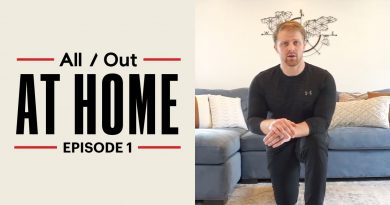What's the Best Treatment for Dandruff?
Dandruff affects the scalp and causes the scalp to flake – it is a common condition. Our skin cells are continually renewing themselves. When the skin cells on our scalp are renewed the old ones are pushed to the surface. If you are a person who suffers with dandruff the renewal process is faster, making the dandruff more of a noticeable problem.
The exact cause of dandruff is not known, although it is believed by some professionals to be associated with an over-growth of Malassezia, which is a fungus commonly found on the skin and scalp. Dandruff can be a long-term problem or it can be the result of certain lifestyle changes or stress. If you have dandruff you may also notice itching and redness on the scalp. Excessive flaking may be caused by an underlying illness or condition, such as psoriasis, a fungal infection, or even head lice.
Having dandruff can be a real blow to a persons self-esteem, knocking ones confidence. Therefore, finding an effective treatment for dandruff may be important for both physiological and psychological reasons.
How to help prevent Dandruff.
Before we start with the cures and for getting rid of dandruff let's have a quick look a some of the steps we can take to help prevent dandruff.
- When you shampoo your hair, try not to scratch your scalp too much.
- Try to avoid putting to many chemicals on your hair such as hair dye.
- Try to manage your stress better. Good quality sleep and meditation could help you de-stress.
- Brush your hair at least once a day. Shampoo it at least three times a week.
- Cut down on your use of hair products such as gel and spray until your dandruff calms down.
- Clean your comb everyday. Try using a good quality barbicide (The blue liquid you may have seen your barber or hairdresser using to store their combs and clippers etc)
- Get more Vitamin B in your diet. Include more seafood, fresh vegetables and nuts in your diet.
- Do not wash your hair in hard water. If you live in an area with hard water, have a filter fitted, or wash your hair with bottled water.
- Change your shampoo. Sometimes you may be using a shampoo which just does not agree with your scalp and can actually agitate the sebaceous glands and cause dandruff. Once you've found a shampoo that works for you, stick with it.
Okay, that's the preventative stuff out of the way … what about the cures?
How to get rid of Dandruff Naturally.
For those of you who prefer to do things the natural way there are plenty of options available to you. If you prefer to using commercially available medicated products instead of going the home remedy type route, then you can skip the next few paragraphs.
- Yogurt makes an excellent hair conditioner. After washing your hair, try rubbing some plain yogurt into your scalp. Leave it for 10 of 15 minutes to do its stuff. Rinse your hair through with a vinegar water mix (you do not need much vinegar, just a tablespoon in a bowl of water). After you've rinsed with the vinegar water, rinse it again with warm water until it's clean. You can then wash your hair through with a little shampoo if you wish.
- Boil the peels of a lemon or two in 1 liter of water for 15-20 minutes. Let it cool and rinse your hair with this solution about once a week.
- Mix the juice of half a lemon with 4 tablespoons of warmed olive oil (obviously not hot, just warm. You do not want burn yourself). Rub the mixture into the roots before washing your hair with a mild shampoo.
- Get some boric acid powder. This is available at the chemist or online and it is usually used as an eye wash. Warm any natural oil such as olive oil, coconut oil or castor oil, add one teaspoon of boric powder and allow it to dissolve. Part your hair into separate sections and apply the oil and massage it well into the scalp. Keep it on for 2-3 hours or ideally overnight if you can, and then wash your hair in the morning. Do this procedure once a week and if your dandruff is stubborn, try it twice a week.
- Mix two tablespoons of malt or cider vinegar into a mug of warm water. After you have washed your hair and rinsed it of shampoo, do a final rinse with this vinegar mix. Do this two of three times a week.
- Take 2 tablespoons of fenugreek seeds, leave them to soak overnight. In the morning grind them into a fine paste. This paste should be applied on the scalp and left for half an hour. The hair should be then washed thoroughly with mild shampoo.
- Add a drop of tea tree oil to your regular shampoo. Tea tree oil has been used for centuries and is a highly effective anti-septic and anti-fungal substance. It's works great to combat dandruff.
Over the Counter Remedies.
If the natural home-remedies are not helping to get rid of dandruff, you might want to try some of the many medicated shampoos that are available over the counter, T-Gel and Head & Shoulders being two which spring to mind. Try to get a trial sized sample of any brand medicated shampoo before making a purchasing. Some brands my work better for you than some others, because they can be quite harsh some medicated shampoos may even worsen your dandruff problem by irritating your skin. So shop around until you find one that works.
What if treatments do not work?
If you have tried all the above methods and nothing has seemed to work for you it could mean there are underlying problems. You may need to speak to a doctor or dermatologist so that they can diagnose what the problem is exactly.
What's the Best Treatment for Dandruff? by Sam E Fisher





